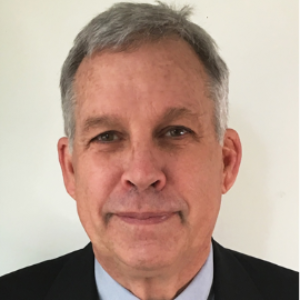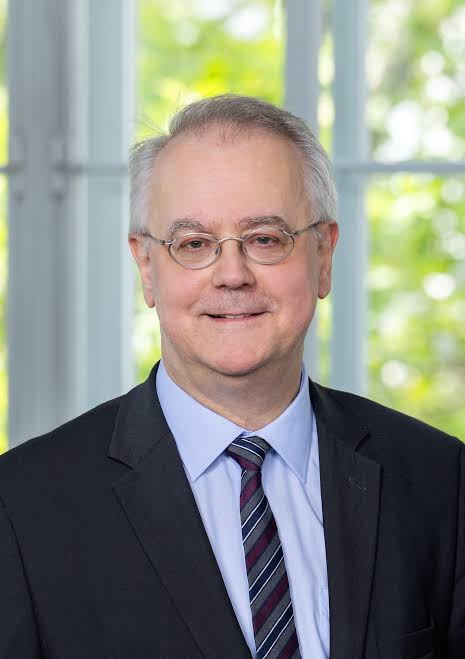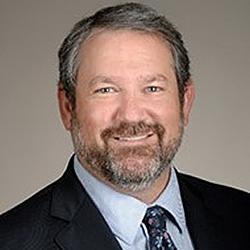SESSIONS AND TRACKS
Track 1: Epidemiology of depression
Depression is the main cause of disability around the world, an expected 4.4 percent of the worldwide populace experiences discouragement, as indicated by a report delivered by the UN World Health Organization (WHO), which shows an 18 percent expansion in the quantity of individuals living with Depression somewhere in the range of 2005 and 2015. Its outcomes further lead to huge weight in general wellbeing, including a higher danger of dementia, untimely mortality emerging from actual problems, and maternal despondency impacts on kid development.
Track 2: Covid and Mental Health
Fear, worry, and stress are normal responses to recognize or real threats, and at times when we are faced with uncertainty or the unknown. So it is normal and understandable that people are experiencing fear in the context of the COVID-19 pandemic. Added to the fear of getting the infection in a pandemic, for example, COVID-19 are the critical changes to our everyday lives as our developments are confined on the side of endeavors to contain and hinder the spread of the infection.
Track 3: Neuropsychology and Behavioral Addiction
Neuropsychology is a part of brain science that is concerned about how an individual's discernment and conduct are identified with the cerebrum and the remainder of the sensory system. Experts in this part of brain science regularly center around what wounds or sicknesses of the mind mean for psychological and conduct capacities. Behavioural addictions have comparative impacts to substance addictions on connections, which are regularly disregarded for the habit-forming conduct, subverting trust and squeezing accomplices and other relatives to conceal and compensate for challenges emerging from the fixation.
Track 4: Epigenetics of Depression
Major depressive disorder is vigorously affected by natural and hereditary variables. These components incorporate epigenetic adjustment of the genome in which there is a tireless change in quality articulation without an adjustment of the genuine DNA grouping. Hereditary and natural variables can impact the genome for the duration of a day to day existence; notwithstanding, an individual is generally defenseless during childhood. Epigenetic factors, like methylation, could fill in as indicators for the adequacy of certain antidepressants treatments. Currently, antidepressants can be utilized to settle mind-sets and decline worldwide DNA methylation levels.
Track 5: Psychiatry & Mental Health
An individual Psychiatry normally starts with a case history and mental health assessment. Actual assessments and mental tests might be directed. Mental issues are frequently determined in understanding to have clinical ideas recorded in demonstrative manuals like the International Classification of Diseases (ICD), altered and utilized by the World Health Organization (WHO) Psychological well-being, as characterized by the Public Health Agency of Canada, is a person's ability to feel, think, and act in approaches to accomplish a superior personal satisfaction while regarding the individual, social, and social boundaries. Impairment of any of these is a danger factor for mental disorders. Mental health problems are characterized as the medical issue that effect and modifies intellectual working, passionate reactions, and conduct related with trouble and additionally disabled functioning.
Track 6: Psychology and Psychotherapy
The study of mind and behaviour is psychology. psychology involves the investigation of cognizant and oblivious occurrence. Analysts additionally look for a comprehension of the new properties of minds, connecting the discipline to neuroscience. As sociology, therapists intend to comprehend the behaviour of individual people and groups. The utilization of psychological strategies, especially when based on standard individual interaction with children, to help an individual change conduct and defeat issues desiredly. Psychotherapy means to further develop a person's prosperity and psychological wellness, to determine or alleviate convictions, impulses, emotions or feelings, and to further develop connections and social abilities.
Track 7: Schizophrenia and Obsessive-Compulsive Disorder (OCD)
Schizophrenia is a severe mental disorder described by unusual social conduct and trouble grasping on what is genuine and what is not. Most of individuals with schizophrenia likewise experience obsessive-compulsive symptoms. About 12% satisfy the diagnostic criteria for obsessive-compulsive disorder. Schizophrenia and OCD are completely independent of one another, both in their source and side effects, yet share qualities that place a few people at higher danger of both.
Track 8: Ayurveda for Mental Health
Ayurveda assumes a part in the administration of emotional wellness problems. As indicated by Ayurveda, psychological well-being is a condition of harmony of the tridoshas, sapta dhatus and the homeostasis of the receptors and the brain. Of the eight branches in Ayurveda, Grahachikitsa manages brain science and psychiatry to help in the avoidance and the board of psychological wellness issues.
Track 9: Depression and Anxiety Disorders
Depression occurs more regularly in women than men. A few contrasts in the way in which the discouraged state of mind shows have been discovered dependent on sex and age. In men it shows frequently as sleepiness, crabbiness and outrage. They may show more crazy conduct and misuse medications and liquor. In ladies depression will in general show as sadness, uselessness, and blame. Anxiety is an ordinary feeling. It's your mind's method of responding to pressure and cautioning you of possible risk ahead. With treatment, numerous individuals with anxiety problems can deal with their sentiments.
Track 10: Evolutionary Psychology and Psychoanalytic Theories
Evolutionary brain science and developmental psychiatry set that psychological problems include the useless activity of mental modules adjusted to tribal physical or social conditions yet not really to present day ones. Social irregularities that take after human dysfunctional behavior have been found in related species. Psychoanalytic theories center around unsettled inside and social contentions. These speculations have been predicated as clarifications of mental issues. This hypothesis focuses around the effect of oblivious forces on human conduct.
Track 11: Addiction Psychiatry
Addiction psychiatry is a clinical subspecialty inside psychiatry that spotlights on the assessment, analysis, and treatment of individuals who are experiencing at least one issues identified with addiction. This may incorporate issues including lawful and illicit medications, gambling, sex, food, and other motivation control problems. Developing measures of scientific information, for example, the wellbeing impacts and medicines for substance use problems have prompted progressions in the field of addiction psychiatry. These advancements in understanding the neurobiology of compensating conduct, alongside government subsidizing, has considered sufficient freedom for research in the discipline of fixation psychiatry.
Track 12: Child and Adolescent Psychiatry
The child and adolescent Psychiatry is dealt by the therapist who works in the analysis and the treatment of issues of reasoning, feeling or potentially conducts influencing youngsters, teenagers, and their families. A child and adolescent therapist offers families the upsides of clinical instruction, the clinical customs of expert morals, and clinical obligation regarding giving exhaustive consideration. It researches the biopsychosocial factors that impact the turn of events and course of mental problems
and treatment reactions to different intercessions. child and adolescent specialists fundamentally use psychotherapy or potentially drug to treat mental issues in the pediatric populace.
Track 13: Forensic Psychiatry
Forensic psychiatry is a subspecialty of psychiatry and is identified with criminology. It incorporates the interface among law and psychiatry. As indicated by the American Academy of Psychiatry and the Law, it is characterized as a subspecialty of psychiatry in which logical and clinical skill is applied in lawful settings including common, criminal, remedial, administrative, or authoritative issue, and in specific clinical discussions in regions.
Track 14: Neuropsychiatry and Neurodevelopmental Disorders
Neuropsychiatry or Organic Psychiatry is a part of medication that arrangements with mental problems inferable from sicknesses of the sensory system. In any case, neuropsychiatry has become a developing subspecialty of psychiatry and it is additionally firmly identified with the fields of neuropsychology and conduct nervous system science. Neurodevelopmental disorders are impedances of the development and improvement of the cerebrum or potentially focal sensory system. A smaller utilization of the term alludes to a problem of mind work that influences feeling, learning capacity, discretion and memory which unfurls as an individual creates and develops
Track 15: Human Resilience
How do an individual deal with difficult events like death of loved ones, serious illness, losing a job or some other traumatic events? Where many people react with a flood of strong emotions and other generally adapt well to life changing situation and stressful conditions. It involves resilience.
Resilience is the process of bouncing back through well adaptation from difficult experience like trauma, tragedy, threats or stress.
-
Approaches to resilience
-
Resilience and ability
-
Psychological resilience
-
Biological models of resilience
Track 16: Clinical Psychology
Clinical psychology is a branch of psychology which concerns with practical application of research methodologies and involved in the diagnosis and treatment of mental disorders. The professionals, clinical psychologists classify their basic activities in three main headings, which are assessment, treatment and research. Clinical psychologists are specialized in behavior therapy, psychoanalysis, group therapy & family therapy. Research is very crucial in clinical psychology as their training in experimental clinical trials and statistical procedures and hence clinical psychologists are very important participants in the studies of mental health care.
Counselling psychology
Applied psychology
Experimental psychology
Psychological intervention
Track 17: Women’s Mental Health
Research suggests that women are about 40% more likely to develop depression than men. They are also twice as men to develop PTSD (Post Traumatic Stress Disorder) and about 10% of women developed after traumatic event comparing to only 4% of men. Mental Disorders affect men and women differently. There are some disorders are common like depression and anxiety. Women experience mental disorder symptoms of mental disorder at the time of their hormonal change like perinatal depression, premenstrual dysphoric disorder and perimenopause related depression and during pregnancy.
Menopause/pregnancy related psychiatric disorders
Anxiety
Infertility/perinatal loss
Post-Traumatic Stress Disorder (PTSD)
Gender specific risk factors
Sexual discrimination
Psychological distress with gynecological disorders
Track 18: Psychosomatic Disorders
Psychosomatic disorder is mainly used to describe a physical disease thought to be caused or to make even worse by several mental factors. Several factors can play role in psychosomatic disorders such as personality traits, family influences, genetic or environmental factors, learned behaviour and more.
Electro convulsive therapy
Hypnosis
Drug abreaction
Group therapy
Supportive psychotherapy
Psychoanalysis
Track 19: Cognitive Psychology
A Process where in we can secure the information and comprehend through experience, faculties, musings, in numerous parts of scholarly capacities, for example, memory, judgment, thinking and critical thinking. Generally utilizing existing information and produce new information. In brain research, the articulation "wisdom" is commonly used inside an information dealing with viewpoint of an individual's psychological limits and it is the identical in scholarly building in a piece of social cerebrum inquire about called social knowledge, the term is used to explain attitudes, attribution, and get-together elements
Track 20: Psychiatry Mental health disorders
A mental issue may likewise cause physical side effects, for example, a cerebral pain, back torment, or stomach torment. In case you're being assessed for a mental issue, make certain to enlighten your primary care physician regarding any physical side effects you're having, including unexplained hurts and pains. Mental wellbeing nursing or psychiatry nursing is the forte of nursing that thinks about individuals of any age with mental trouble or disease, for example, schizophrenia, bipolar issue, misery, psychosis it is an upsetting and sincerely depleting occupation just as a remunerating work for once vocation.
Track 21: Adolescent Psychopathology:
Immature psychopathology is the presence of mental issue in children and youngsters. Oppositional safe strife, thought insufficiency hyperactivity issue, and unpreventable developmental issue are examples of kid psychopathology. The full once-over of formal characteristic codes and portrayal of mental health issue can be found in the DSM-5; this is a comparative manual which spreads grown-up psychopathology, anyway it has certain discoveries unequivocal to adolescents and young people.
Track 22: Perinatal Mental Health Pregnancy
Pregnancy and the infant blues period are both notable inconveniences brought on by perinatal psychological instability. Despondency, stress, and baby blues psychosis—which generally manifests as bipolar disorder—are among these clutters. Perinatal anxiety and depression are widespread, with rates of serious and moderate distress up to nearly 20% throughout pregnancy and the first three months of parenthood. The common yet less severe symptom of the baby blues' unpleasant emotional impact is baby blues. Perinatal mental disorders impair a woman's capacity and are linked to a troublesome increase in her offspring.
Track 23: Hypnotherapy
Hypnotherapy sessions are typically conducted by trained and certified hypnotherapists who establish a safe and trusting environment for clients. They employ relaxation techniques and guided imagery to induce the hypnotic state and then offer tailored suggestions or explore underlying psychological issues.
Additionally, hypnotherapy is commonly used to support behavioral changes. Whether it's smoking cessation, weight management, or breaking harmful habits, the heightened suggestibility during hypnosis can facilitate the adoption of new, healthier behaviors.
Participation/Presentation Option
Participation/Presentation Option:
Oral presentation: Oral Presentations may include the topics from researches, theoretical, professional or private practices in a concise manner. Individuals with personal experience are also welcome to present personal experience or narratives which help others in everyday life.
Speakers with a 30-minute slot should plan to speak for 20-25 minutes, and Keynote speakers should plan to speak for 40-45 minutes, with the remaining time to be used for questions and discussion by the Session Chair
Workshop: For workshop presenters also, topic of talk will be same as Oral presentation with more specialized techniques and detailed demonstration. The generalized time duration for workshop presentation is about 45-50 minutes. Interested participants can join with their respective team and present the workshop with their research coordinators with special group waiver on registration.
Poster presentation: Student Poster Competition will be organized at Psychology Health 2025 conference is to encourage students and recent graduates to present their original research. Presenters will be given about 5-7 minutes to present the poster including questions and answers. Judges may ask questions during the evaluation of the presentation. This is an opportunity for young scientists to learn about the recent findings of their peers to increase their capacity as multidisciplinary researchers. Poster displays will be in hard copy format of 1x1 M long.
For more details regarding Poster Presentation and Judging Criteria view Poster Presentation Guidelines
Webinar: Webinar presentation is designed for those interested attendees who cannot join in person due to schedule conflict or other obligations. In this option the presenter may record the presentation and their presentation will be presented in the Webinar presentation session.
E-Poster: e-Poster is also similar to the webinar presentation. In this session, their presentation will be published in the form of poster in the conference website and the presenter abstract will be published in the conference souvenir and journal with DOI
Delegate: If you are planning to attend as a delegate, we welcome you to join us in this enriching experience. As a delegate, you will have access to a wide range of presentations, workshops, and networking opportunities, all designed to enhance your knowledge and professional network.
Exhibition: Psychology Health 2026 has the opportunity to exhibit the products and services from commercial and non-commercial organizations like Drug manufactures, Clinical Trial Sites, Management Consultants, Chemists, Pharmacists, Business delegates and Equipment Manufacturers.
To know more about exhibitor booth details and benefits visit WHY TO EXHIBIT WITH US?
Advertisement: The conference program is a valuable resource that all attendees refer again and again as they navigate the conference. Advertising in the conference program is a great way to market and can help you securing long term business.
Sponsor Psychology Health 2025
Premium Sponsorship package
Additional Sponsorship package






